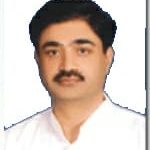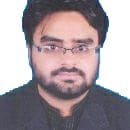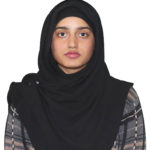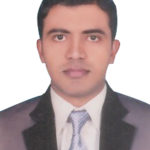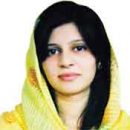The Best view comes after the hardest climb
Welcome-
Few Words About Us
Introduction
The Programme provides quality engineering education to enable the students to enter a profession that can improve the civil infrastructure and economic welfare. It also emphasizes on the undergraduate education with the goal for quality instruction in civil engineering analysis and design.
Vision
Mission
The vision of Civil Engineering department is:
To produce professionals having the capability to resolve engineering problems through their innovative, interdisciplinary, and problem-solving skills. At the same time, we envision to equip them with adequate learning for quality research and development
The mission of Civil Engineering program is:
“To impart high quality knowledge while focusing on research and innovation in Civil Engineering to make students competitive, co-operative, and prepare them to lead for challenging industrial problems encountered in socioeconomic development of the modern society”
Program Educational Objectives (PEOs)
Following are the Program Educational Objectives (PEOs) for B.Sc. Civil Engineering Program of the Department of Civil Engineering:
PEO-1
PEO-2
PEO-3
PEO-4
Demonstrate significant knowledge and skills in the field of Civil Engineering at national and international level.
Effective communication skills and teamwork for efficient collaboration in multi-disciplinary projects.
Engage in professional practice maintaining ethical, social, and environmental needs.
Continue professional growth through broadening their spectrum of knowledge
Program Learning Outcomes (PLOs)
The Program Learning Outcomes (PLOs) are adopted in the Department of Civil Engineering as defined by Pakistan Engineering Council (PEC) to support our defined educational objectives. The PLOs are based on students learning such as aptitude, awareness and knowledge that gain with the succession of the program.
Ability to apply knowledge of mathematics, science, engineering fundamentals and an engineering specialization to the solution of complex engineering problems
Ability to identify, formulate, research literature, and analyze complex engineering problems reaching substantiated conclusions using first principles of mathematics, natural sciences, and engineering sciences.
Ability to design solutions for complex engineering problems and design systems, components or processes that meet specified needs with appropriate consideration for public health and safety, cultural, societal, and environmental considerations
Ability to investigate complex engineering problems in a methodical way including literature survey, design and conduct of experiments, analysis and interpretation of experimental data, and synthesis of information to derive valid conclusions
Ability to create, select and apply appropriate techniques, resources, and modern engineering and IT tools, including prediction and modeling, to complex engineering activities, with an understanding of the limitations.
Ability to apply reasoning informed by contextual knowledge to assess societal, health, safety, legal and cultural issues, and the consequent responsibilities relevant to professional engineering practice and solution to complex engineering problems.
Ability to understand the impact of professional engineering solutions in societal and environmental contexts and demonstrate knowledge of and need for sustainable development.
Ability to apply ethical principles and commit to professional ethics and responsibilities and norms of engineering practice.
Ability to work effectively, as an individual or in a team, on multifaceted and /or multidisciplinary settings.
Ability to communicate effectively, orally as well as in writing, on complex engineering activities with the engineering community and with society at large, such as being able to comprehend and write effective reports and design documentation, make effective presentations, and give and receive clear instructions.
Ability to demonstrate management skills and apply engineering principles to one’s own work, as a member and/or leader in a team, to manage projects in a multidisciplinary environment.
Ability to recognize importance of and pursue lifelong learning in the broader context of innovation and technological developments.
Lab and Research Facilities
In the Department of Civil Engineering various research labs and facilities are established to flourish the research activities.
Keeping in mind the needs of today and the future, this Faculty has an assortment of equipment and facilities for the students so they can cope up with the fast changing technology. It provides them with the opportunity to learn and understand the concepts of civil engineering and its practical applications. The purpose of these labs is to enhance the classroom learning. Specialized software’s are available on these computers that support the courses. All the labs are equipped with the necessary modern tools and state of the art equipment.
- Concrete/Materials Lab
- Surveying Lab
- Geotechnical Engg Lab
- Mechanics/SOM Lab
- Transportation Engg Lab
- Environmental Engg Lab
- Fluid Mechanics/Hydraulics Engg Lab
- Drawing Lab
- CAD/Computer Lab
- Basic Electrical Lab
Achievements
We believe the close faculty-student interaction enabled by our small but diverse population fosters intellectual growth among our students. We are proud of our students’ many accomplishments, and make sure to celebrate them at PIET.
Journal and Conference-Publication by Students
PUBLISHED PAPERS
– Shah, S. A. R., Mahmood, Z., Nisar, A., Aamir, M., Farid, A., & Waseem, M. (2020). Compaction performance analysis of alum sludge waste modified soil. Construction and Building Materials, 230, 116953. (I.F=4.046).
– Ali, F.; Khan, M.A.; Qurashi, M.A.; Shah, S.A.R.; Khan, N.M.; Khursheed, Z.; Rahim, H.S.; Arshad, H.; Farhan, M.; Waseem, M. Utilization of Pyrolytic Carbon Black Waste for the Development of Sustainable Materials. Processes 2020, 8, 174. (I. F=1.963).
– Hanif,M.H.; Adnan, M.; Shah, S.A.R.; Khan, N.M.; Nadeem, M.; Javed, J.; Akbar, M.W.; Farooq, A.; Waseem, M. Rainfall Runoff Analysis and Sustainable Soil Bed Optimization Engineering Process: Application of an Advanced Decision-Making Technique. Symmetry 2019, 11, 1224. (I.F=2.143).
– Imam, M. A. H.; Shah, S. A. R.; Ghafoor, Z.; Ismail, M.; Qurban, N.; and Arif, N.,(2018) ,Use of Fly ash as Partial Replacement Material in Ordinary Portland Cement Concrete – An exploratory study 5th International Conference on Competitive Materials and Technology Processes, Miskolc-Lillafüred, Hungary, pp.249 (ISBN 978-615-00-3114-9).
– Saeed M.H et al. Impact of Aggregate Geology on Road Construction: A Marshall Test Based Stability Analysis (Paper. No. CE-SM-019), International Civil Engineering and Architecture Conference (ICEARC’19), Trabzon, Turkey.
– Sadiq A.N. et al. (2019). Analysis of Aggregate Shape and Texture by Advance Image Analysis Technique and its impact on Strength of Concrete (Paper. No. CE-SM-018), Proceeding of International Civil Engineering and Architecture Conference (ICEARC’19), Trabzon, Turkey.
– Imtiaz S. et al. (2019) Defects Analysis of Historic Buildings: A Case Study of The Multan Sharif (Madina-Tul-Awaliya)-City of Saints for Conservation and Restoration. Proceedings of International Civil Engineering and Architecture Conference (ICEARC),17-20 April, Trabzon, Turkey.
PUBLISHED PAPERS
– Farid, H.; Mansoor, M.S.; Shah, S.A.R.; Khan, N.M.; Shabbir, R.M.F.; Adnan, M.; Arshad, H.; Haq, I.-U.; Waseem, M. Impact Analysis of Water Quality on the Development of Construction Materials. Processes 2019, 7, 579. (I. F=1.963).
– Qurashi M. A. et al. Sustainable Design and Engineering: A Relationship Analysis Between Digital Destructive and Non-Destructive Testing Process. Processes 2019. (I. F=1.963).
– Hasnain Saeed, M.; Shah, S.A.R.; Arshad, H.; Waqar, A.; Imam, M.A.H.; Sadiq, A.N.; Hafeez, S.; Mansoor, J.; Waseem, M. Sustainable Silicon Waste Material Utilization for Road Construction: An Application of Modified Binder for Marshall Stability Analysis. Appl. Sci. 2019, 9, 1803. (I. F=2.217).
– Aamir, M.; Mahmood, Z.; Nisar, A.; Farid, A.; Ahmed Khan, T.; Abbas, M.; Ismaeel, M.; Shah, S.A.R.; Waseem, M. Performance Evaluation of Sustainable Soil Stabilization Process Using Waste Materials. Processes 2019, 7, 378. (I. F=1.963).
– Shah, S.A.R; Arshad, H.; Waqar, A.; Saeed, M.H.; Hafeez, S.; Mansoor, J.; Sadiq, A.N.; Malik, M.A. Saving Energy in the Transportation Sector: An Analysis of Modified Bitumen Application Based on Marshall Test. Energies 2018, 11, 3025. (Impact Factor-2.676).
– Mansoor, J., Shah, S. A. R., Khan, M. M., Sadiq, A. N., Anwar, M. K., Siddiq, M. U., & Ahmad, H. (2018). Analysis of Mechanical Properties of Self Compacted Concrete by Partial Replacement of Cement with Industrial Wastes under Elevated Temperature. Applied Sciences, 8(3), 364. (I.F=1.679)
– Arshad H et al. (2019) Study of Mechanical Properties of Concrete Developed Using Metamorphosed Limestone Powder (MLSP), Burnt Clay Pozzolana (BCP) & Wood Ash (WA) as Partial Replacement of Cement, Proceeding of 1st Conference on Sustainability in Civil Engineering, August 01, 2019, Capital University of Science and Technology, Islamabad, Pakistan.
Experienced Staff
Proper teaching is recognized with ease. You can know it without fail because it awakens within you that sensation which tells you this is something you have always known
